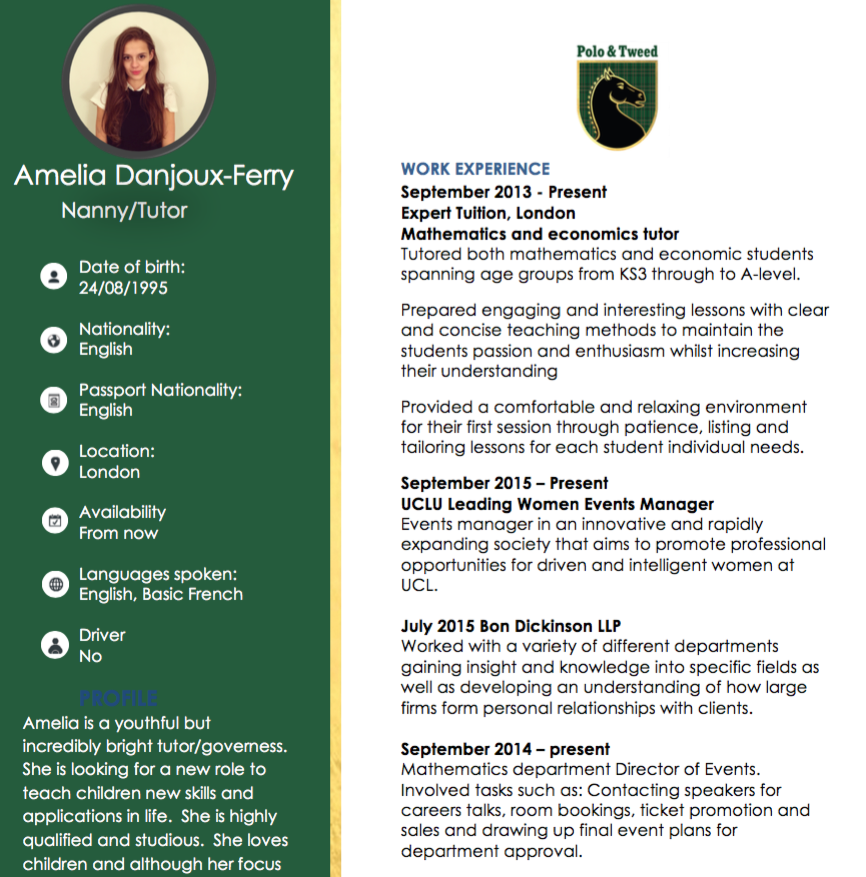

With each point you include, consider what it says about you – employers are looking for enthusiasm and interest and your CV has to reflect this.If you’ve had similar jobs try to phrase the responsibilities differently to avoid being repetitive.This is the section where people are tempted to lie to make themselves more interesting- so don’t include a hobby or interest that you don’t have - you might just get the Irish Abseiling champion interviewing you for the job! Interests and hobbies give an insight into the ’real you’ so it is a good idea to include them.Any inconsistencies will be found out at interview stage and could cost you the job.There is a big difference between making the most of your experience and exaggerating and telling lies!.There is no need to list details of all tasks keep focused on what you achieved in the role.Don’t be afraid to sell what you have achieved.Check out our list of CV “power” words to give you some inspiration In your work experience section, include power/action words such as ’developed’ ’designed’ ’managed’ ’co-ordinated’ to emphasise your duties.a B Comm might have two CVs for a trainee accountant role and a graduate sales role. Have a couple of different CVs for the types of jobs you might be applying for e.g. Research the company and use the job specification to gauge what skills you should highlight.Changing the skills section and the modules you include in your education section can have a big impact on how the recruiter perceives your suitability for the role. Employers need to see a clear fit between the job and the person.This is really important and is worth the effort. CVs should be tailored for each position applied for.Also, don’t take the first recommended spelling in spell check, it may not be the correct word for your sentence! Proof read and spell check – don’t trust spell check – “too”, “two” and “to” are all correct spellings but have very different meanings.Recruiters will reject CVs with avoidable errors, no matter how talented you are!.Ensure that there are no spelling errors Correct punctuation and grammar are very important.The font should be consistent for headings and subtext.
CONNECTIONS CV MAKER PROFESSIONAL
Use simple fonts that give a professional look – stick to Times New Roman or Ariel and don’t go below font size 10.Use bullet points and keep sentences short.Make your CV easy on the eye - avoid cramming lots of information on the page.Keep it short, punchy and to the point – avoid long winded paragraphs – recruiters don’t have time to read a story – use bullet points.You can’t include everything you’ve ever done so do get some help editing the CV if you are struggling to keep it to three pages.Recruiters often scan CVs and want information quickly.Use the past tense for previous employment and present tense for your current role – it is important to be consistent.CVs are professional documents and should be written in formal language.However, if you have relevant work experience you should put this first (and mention it in your cover letter) and then have a second section with “other work experience”.Start with your most recent/current qualification and work experience and work in reverse chronological order.It is usual to have one academic and one work reference. Referees - do ask for permission from your referees before you include them on your CV.Skills Profile with Evidence to support each skill you claim to have.Employment – give your job title and employer name – focus on actions & results rather than a list of duties.Education & Qualifications – you might include some of your modules, projects and essays that are specifically relevant for the job you are applying for.Statement of Career Aims/Objective or Personal Profile – this is optional and needs to be written well – don’t copy and paste from the internet – it has to reflect who you are/what you want.Personal Details - no need to give your date of birth, gender or marital status!.


 0 kommentar(er)
0 kommentar(er)
